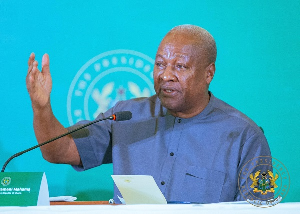The Brong-Ahafo Regional Deputy Commander of the Domestic Violence and Victim Support Unit(DOVVSU), ASP Setina Aboagye has expressed concern about the increasing numbers of domestic violence cases in the region.
ASP Aboagye, who was speaking at a regional celebration of International Women’s Day organised by Action Aid Ghana and Ministry of Gender and Social Protection, said available statistics at DOVVSU showed violence cases in the region were on the ascendancy.
She said in 2009 the region recorded 1,028 cases whilst the rate was 1,278, 1,040 and 1,257 in 2010, 2011 and 2012 respectively.
ASP Aboagye said the difference in the cases recorded for the past four years appeared insignificant because the real situation was not a reflection of the available figures since most victims refused to report their cases to DoVVSU.
She said fees charged by medical doctors before endorsing victims’ forms also discourage most of them to pursue cases due to financial constraints.
Domestic violence, she said, acknowledged, had negative social and psychological effects on victims and communities and therefore hindere development while perpetuating poverty.
Mrs Patricia Awuah of the Regional Directorate of Education contended that girls could be well-educated in an environment devoid of violence. She stressed the need to educate men and boys to understand laws on domestic violence against women and girls.
Mrs Awuah suggested that there should be a problem box in various schools where students, can report assault cases. She added men and boys could also be encouraged to join social clubs and human rights groups to enable them to develop and promote good care for females.
Mr John Abaa, Regional Programme Officer of Action Aid Ghana, said a lot of violent cases were linked to gender-based inequalities since most violence against women are perpetuated by men.
He called for community education to influence and shape social norms that could support and promote non-violence.
Regional News of Friday, 15 March 2013
Source: GNA













